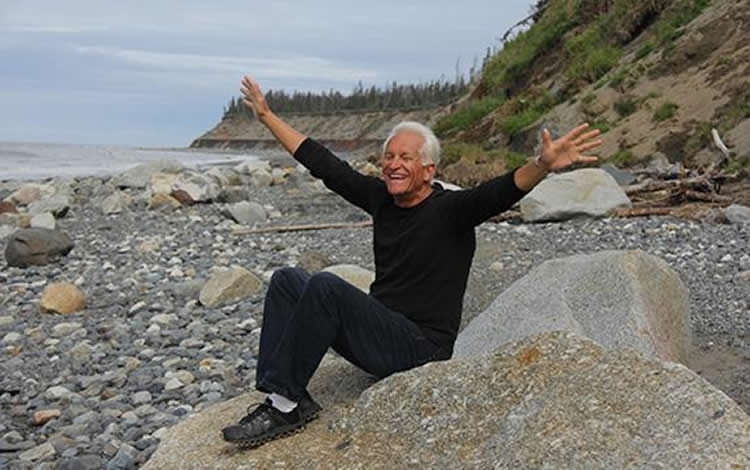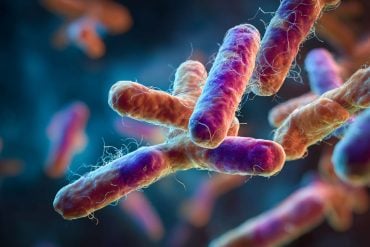Summary: A new study reports greater physical fitness and a more elastic aorta can protect cognitive function during aging.
Source: IOS Press.
The rate of decline in certain aspects of memory may be explained by a combination of overall physical fitness and the stiffness of the central arteries, researchers from Swinburne’s Centre for Human Psychopharmacology have found.
A study to be published in the Journal of Alzheimer’s Disease considers the mechanisms underlying cognitive performance in older people living independently. Lead author, PhD candidate Greg Kennedy, says that from early adulthood, memory and other aspects of cognition slowly decline, with an increasing risk of developing into dementia in later life.
“Exactly why this occurs is unclear, but research indicates that exercise and physical fitness are protective,” Mr Kennedy says. “A healthier, more elastic aorta is also theorised to protect cognitive function, by reducing the negative effects of excessive blood pressure on the brain.”
The study investigated whether fitness was associated with better cognition through a healthier aorta. Physical fitness and arterial stiffness assessment One hundred and two people (73 females and 29 males), aged between 60 and 90 years, living independently in aged care communities, were recruited in Melbourne, Australia.
Their fitness was assessed with the Six-Minute Walk test which involved participants walking back and forth between two markers placed 10 metres apart for six minutes.
Only participants who completed the full six minutes were included in the analysis, which assessed the stiffness of their arteries and cognitive performance.

“People generally are less fit and have stiffer arteries as they age, which seems to explain the difference in memory ability that is usually attributed to ‘getting older’,” Mr Kennedy says.
Interestingly, physical fitness did not seem to affect central arterial stiffness, however Mr Kennedy points out that only current fitness was assessed – long term fitness may be a better predictor of central arterial stiffness, however this has yet to be investigated.
“Unfortunately, there is currently no effective pharmacological intervention that has proven effective in the long term in reducing this decline or staving off dementia,” Mr Kennedy says.
“The results of this study indicate that remaining as physically fit as possible, and monitoring central arterial health, may well be an important, cost effective way to maintain our memory and other brain functions in older age.”
Source: Lea Kivivali – IOS Press
Publisher: Organized by NeuroscienceNews.com.
Image Source: NeuroscienceNews.com image is credited to Swinburne University of Technology.
Original Research: Abstract for “Physical Fitness and Aortic Stiffness Explain the Reduced Cognitive Performance Associated with Increasing Age in Older People” by Kennedy, Greg; Meyer, Denny; Hardman, Roy J.; Macpherson, Helen; Scholey, Andrew B.; and Pipingas, Andrew in Journal of Alzheimer’s Disease. Published May 30 2018
doi:10.3233/JAD-171107
[cbtabs][cbtab title=”MLA”]IOS Press “Better Physical Fitness and Lower Aortic Stiffness Key to Slower Brain Aging.” NeuroscienceNews. NeuroscienceNews, 12 June 2018.
<https://neurosciencenews.com/fitness-brain-aging-9322/>.[/cbtab][cbtab title=”APA”]IOS Press (2018, June 12). Better Physical Fitness and Lower Aortic Stiffness Key to Slower Brain Aging. NeuroscienceNews. Retrieved June 12, 2018 from https://neurosciencenews.com/fitness-brain-aging-9322/[/cbtab][cbtab title=”Chicago”]IOS Press “Better Physical Fitness and Lower Aortic Stiffness Key to Slower Brain Aging.” https://neurosciencenews.com/fitness-brain-aging-9322/ (accessed June 12, 2018).[/cbtab][/cbtabs]
Abstract
Physical Fitness and Aortic Stiffness Explain the Reduced Cognitive Performance Associated with Increasing Age in Older People
Background:
Greater physical fitness is associated with reduced rates of cognitive decline in older people; however, the mechanisms by which this occurs are still unclear. One potential mechanism is aortic stiffness, with increased stiffness resulting in higher pulsatile pressures reaching the brain and possibly causing progressive micro-damage. There is limited evidence that those who regularly exercise may have lower aortic stiffness. Objective:To investigate whether greater fitness and lower aortic stiffness predict better cognitive performance in older people and, if so, whether aortic stiffness mediates the relationship between fitness and cognition.
Methods:
Residents of independent living facilities, aged 60–90, participated in the study (N = 102). Primary measures included a computerized cognitive assessment battery, pulse wave velocity analysis to measure aortic stiffness, and the Six-Minute Walk test to assess fitness. Based on hierarchical regression analyses, structural equation modelling was used to test the mediation hypothesis.
Results:
Both fitness and aortic stiffness independently predicted Spatial Working Memory (SWM) performance, however no mediating relationship was found. Additionally, the derived structural equation model shows that, in conjunction with BMI and sex, fitness and aortic stiffness explain 33% of the overall variation in SWM, with age no longer directly predicting any variation.
Conclusions:
Greater fitness and lower aortic stiffness both independently predict better SWM in older people. The strong effect of age on cognitive performance is totally mediated by fitness and aortic stiffness. This suggests that addressing both physical fitness and aortic stiffness may be important to reduce the rate of age associated cognitive decline.







